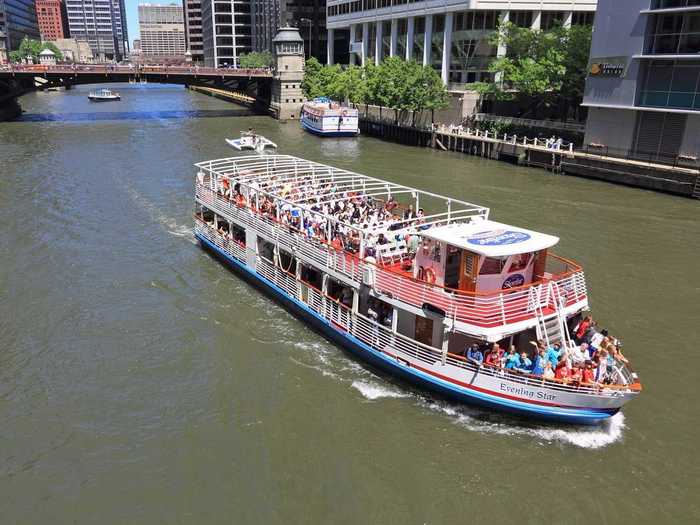
PepsiCo via Getty Images
Unemployment in the United States has hit 14.7% — the highest since the Great Depression. 20.5 million jobs were lost in April alone.
Some industries have been more severely impacted than others, with jobs in the restaurant and retail industries wiped out around the country.
But a Business Insider analysis of recent unemployment data from the Bureau of Labor Statistics shows that some industries that haven't received widespread attention — like dentist offices and movie production — have been hit hard by the shutdowns.
Business Insider compiled a list of the 10 industries worst hit by the coronavirus pandemic, ordered by percent change to reflect the portion of jobs lost in each industry.
Additional reporting by Andy Kiersz.
Read the original article on Business Insider
The "Scenic and Sightseeing Transportation" sector was the worst hit industry in the United States by the coronavirus shutdowns, with activities like boat tours or off-road adventures closed.
Jobs in the sector fell by 62.1% from February to April this year.

Amusement, gambling, and recreation industries were the second-worst hit by the coronavirus shutdowns. The category, which includes theme parks, casinos, and other recreation sites, lost 59.9% of its jobs from February to April 2020.
Las Vegas' mayor has expressed hope that her city's casinos could open soon, though it appears unlikely.
Disney recently reopened its park in Shanghai, China with restrictions like temperature monitoring and social distancing requirements, providing insight into how the company could potentially open its parks in California and Florida.

Clothing and accessories stores were deemed nonessential, and jobs in the already struggling industry fell by 58.9% from February to April this year.
As the shutdowns hit the retail industry, companies like Neiman Marcus and J. Crew have filed for bankruptcy.

Personal and laundry services, a Bureau of Labor Statistics category that includes laundry and dry cleaning; pet care; parking; dating services; and "death care," were severely impacted by the coronavirus shutdowns.
53.5% of jobs in the personal and laundry services category were lost from February to April 2020.

Deemed nonessential in many states, more than half of the jobs in dentist offices disappeared due to the coronavirus.
Dentist offices lost 53.3% of jobs from February to April 2020. Some states, like Colorado, allowed dentists to reopen late last month.

Movie and TV sets have been shuttered due to the coronavirus, causing the industry to lose more of its jobs (by percentage) than even restaurants or hotels.
The number of people employed in motion picture and sound recording jobs fell by 48.3% from February to April this year.

While many restaurants and bars have tried to stay afloat with takeout options, the industry was hit hard by the pandemic, losing 48.1% of jobs from February to April.
Some states have started to allow dine-in services, though it's unclear if diners will rush back — and many restaurants will be operating with a limited capacity.

Furniture stores lost 46.3% of jobs from February to April as they were deemed non-essential and closed.
Some stores have reopened with restrictions. The Minneapolis Star Tribune reported that stores in Minnesota were reopening with shopping by appointment only.

Performing arts and spectator sports lost 45.4% of jobs from February to April as theaters, orchestra halls, ballets, and sports arenas closed because of the coronavirus.
Large sporting events are unlikely to return until the pandemic ends, experts have said, though sporting associations have considered airing games with no in-person crowds.

Hotels lost 42.3% of jobs from February to April this year. While the number of people taking vacations has plummeted, hotels have been used by some people still doing business travel, or those quarantining themselves from family or roommates.
New York City announced this weekend it would use 1,200 hotel rooms as part of its testing and tracing efforts, a tactic successfully used in other countries like South Korea.
 Stock markets stage strong rebound after 4 days of slump; Sensex rallies 599 pts
Stock markets stage strong rebound after 4 days of slump; Sensex rallies 599 pts
 Sustainable Transportation Alternatives
Sustainable Transportation Alternatives
 10 Foods you should avoid eating when in stress
10 Foods you should avoid eating when in stress

Copyright © 2024. Times Internet Limited. All rights reserved.For reprint rights. Times Syndication Service.